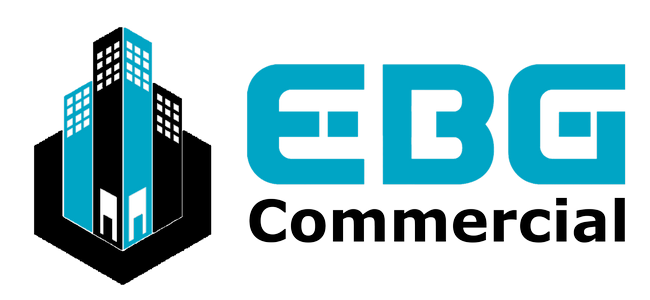Effective Lease Negotiation Tips for Industrial Property Managers
Navigating lease negotiations for industrial properties can be a complex process that requires a strategic approach. As an industrial property manager, ensuring that you achieve favorable terms while maintaining a good relationship with tenants is crucial. Here are some effective tips to help you master lease negotiations.
1. Understand the Market
Before entering into any negotiation, it’s essential to have a solid understanding of the current market conditions. This includes knowing the average rental rates, vacancy rates, and the demand for industrial spaces in your area. Conduct a thorough market analysis to gather this information. Being well-informed will give you the upper hand in negotiations and enable you to set realistic expectations.
2. Know Your Property’s Unique Selling Points
Highlighting the unique features and advantages of your property can help justify your terms and rental rates. For instance, if your industrial space has high ceilings, ample parking, advanced security systems, or proximity to major highways and transportation hubs, make sure these benefits are clearly communicated. Emphasize how these features can improve the tenant’s operations and efficiency.
3. Set Clear Objectives
Determine your priorities and goals for the lease negotiation. Are you looking to maximize rental income, secure a long-term lease, or ensure that the tenant is a good fit for the property? Having clear objectives will guide your negotiation strategy and help you make informed decisions throughout the process.
4. Prepare Thoroughly
Preparation is key to successful lease negotiations. Gather all necessary documentation, including property maintenance records, recent property valuations, and any relevant financial data. Being well-prepared will enable you to respond confidently to any questions or concerns the tenant may have and demonstrate your professionalism.
5. Understand the Tenant’s Needs
Understanding the tenant’s business and their specific needs can provide valuable leverage in negotiations. Take the time to learn about their operations, growth plans, and any particular requirements they may have for the space. This knowledge can help you tailor the lease terms to better suit their needs, making the offer more attractive to them.
6. Be Flexible but Firm
Flexibility can be beneficial in lease negotiations, but it’s important to know your limits. Be open to compromise on certain terms, such as lease duration or rental escalation clauses, but remain firm on critical issues like base rent and maintenance responsibilities. Finding a balance between flexibility and firmness can help you reach a mutually beneficial agreement.
7. Offer Incentives
Consider offering incentives to make your lease offer more appealing. These could include rent-free periods, contributions to tenant improvements, or reduced rates for the initial lease period. Incentives can be particularly effective in competitive markets or when negotiating with high-quality tenants.
8. Draft a Comprehensive Lease Agreement
A well-drafted lease agreement is essential to protect your interests and avoid disputes. Ensure that the lease document covers all critical aspects, including:
- Rent and Security Deposit: Clearly specify the rental amount, payment schedule, and security deposit requirements.
- Lease Duration and Renewal Options: Outline the lease term and any options for renewal or extension.
- Maintenance and Repairs: Define the responsibilities of both the landlord and tenant regarding property maintenance and repairs.
- Use of Premises: Specify the permitted use of the property and any restrictions.
- Insurance Requirements: Detail the insurance coverage required from the tenant.
- Default and Termination: Include provisions for handling defaults and lease termination.
Consulting with a legal professional to draft or review the lease agreement is highly recommended.
9. Communicate Clearly and Effectively
Clear and effective communication is crucial throughout the negotiation process. Be transparent about your expectations and listen actively to the tenant’s concerns. Address any issues promptly and provide clear explanations for your positions. Good communication can help build trust and facilitate a smoother negotiation process.
10. Be Patient and Persistent
Lease negotiations can take time, and it’s important to remain patient and persistent. Avoid rushing the process or making hasty decisions. Instead, focus on building a strong foundation for a long-term, mutually beneficial relationship with the tenant.
11. Utilize Professional Assistance
Don’t hesitate to seek professional assistance if needed. Real estate brokers, property managers, and legal advisors can provide valuable insights and support throughout the negotiation process. Their expertise can help you navigate complex issues and achieve favorable outcomes.
12. Stay Updated on Legal and Regulatory Changes
Laws and regulations governing commercial leases can change frequently. Staying informed about any legal or regulatory updates that may impact your lease agreement is crucial. This includes changes in zoning laws, environmental regulations, and building codes. Compliance with current laws will protect you from potential legal issues and ensure that your lease agreements are enforceable.
13. Evaluate and Learn from Each Negotiation
After each negotiation, take the time to evaluate the process and outcomes. Identify what worked well and areas where you could improve. Learning from each experience will help you refine your negotiation skills and strategies for future lease negotiations.
Conclusion
Effective lease negotiation is a critical skill for industrial property managers. By understanding the market, preparing thoroughly, and maintaining clear communication, you can achieve favorable lease terms while building strong tenant relationships. Remember to stay flexible, offer incentives, and seek professional assistance when needed. With these tips, you’ll be well-equipped to navigate the complexities of lease negotiations and ensure the long-term success of your industrial property.


